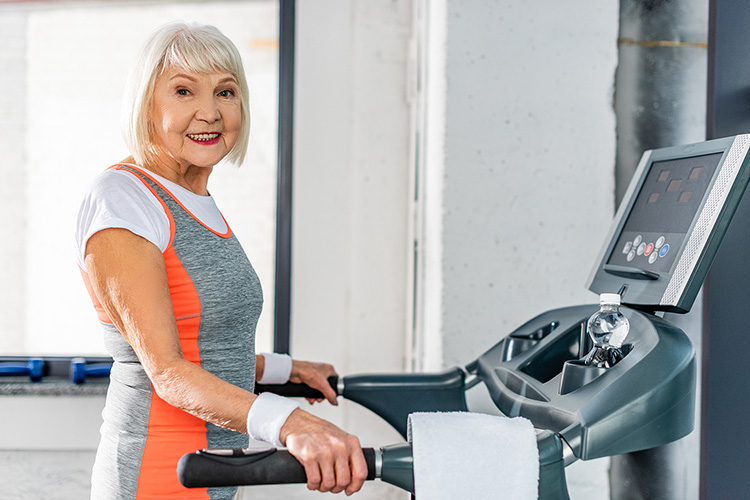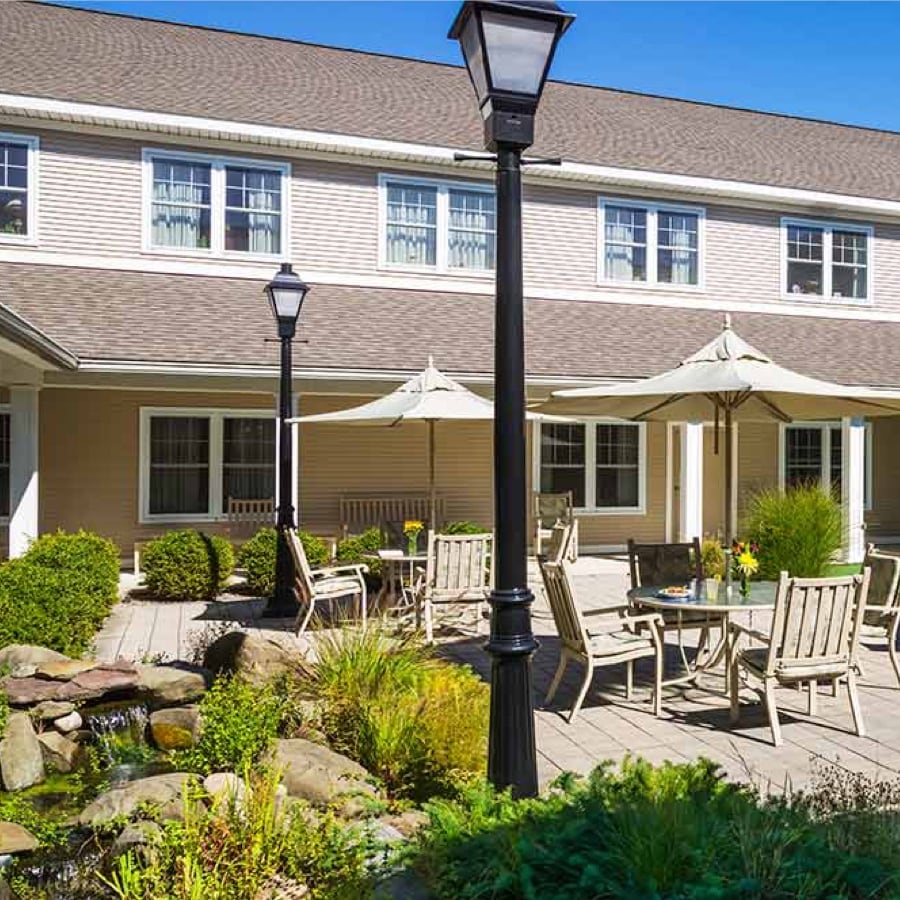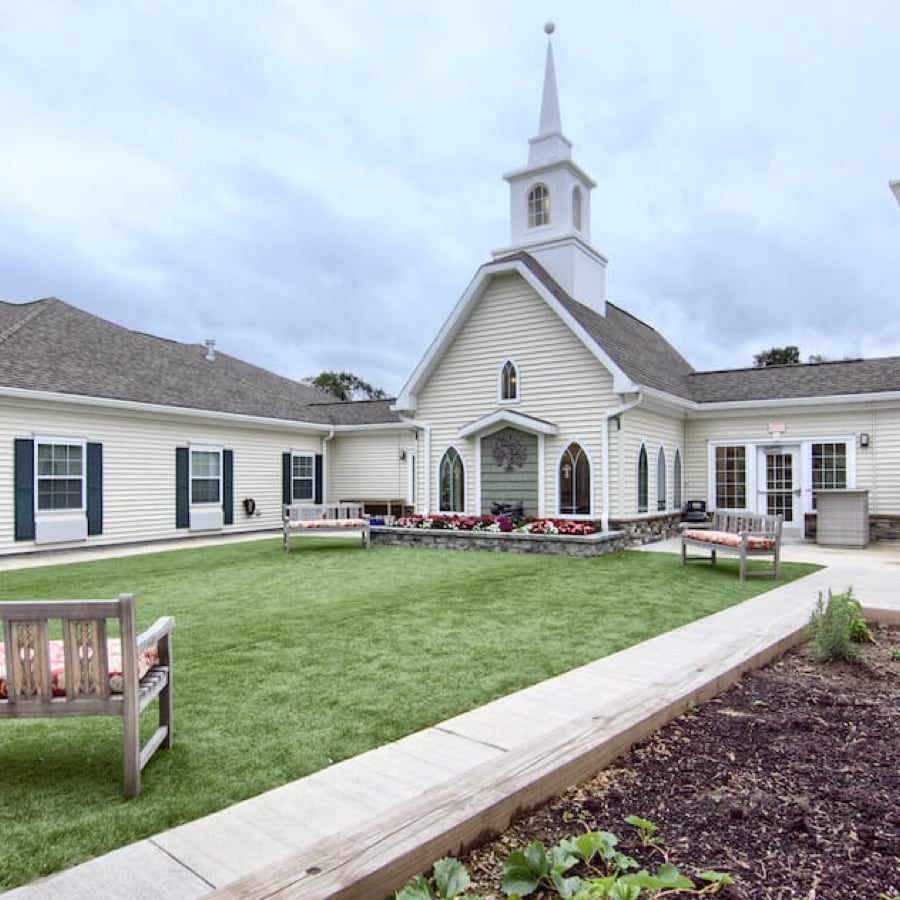You’ve heard of it: the fountain of youth! The same one that Juan Ponce de León wore out his sandals searching for. Throughout history, it’s been said to exist in Florida, Cuba, the Canary Islands, Polynesia, and England. But it’s actually much closer than you think!
According to the True Health Initiative, physical exercise remains the single best remedy for delaying and potentially preventing some of the negative consequences of aging. And that includes the brain. In fact, in a 2019 University of Iowa study, researchers found just a single bout of exercise can benefit an older adult’s brain.
The best part: the secret to staying as young as you can is well within reach—and it’s even easier if you’re living in a senior living community with extensive resources like a Peregrine Senior Living community! The Peregrine Way™ offers a variety of wellness programs and opportunities, so you can get the exercise you need in a friendly atmosphere with friends to help encourage you.
6 ways exercise helps the aging brain
- Improves brain function. There are several ways in which physical exercise can benefit the functions of your brain: Promoting a healthy cardiovascular system. Improving blood flow to the brain. Reducing inflammation. Lowering levels of stress hormones. In addition, exercise promotes neuroplasticity, which is your brain’s ability to form new neural connections and adapt throughout life.
Overall, aging can change the structure of your brain, which can lead to dementia. Exercise can reduce these changes, thus delaying or possibly preventing the onset of Alzheimer’s disease or another form of dementia.
- Protects thinking skills and memory function. Harvard Medical School reports regular aerobic exercise appears to boost the size of the hippocampus, the brain area involved in verbal memory and learning. In addition, regular exercise helps the aging brain by increasing how much oxygen it receives. Exercise also reduces the risk for disorders that lead to memory loss, such as diabetes and cardiovascular disease.
- Improves sleep. Rip Van Winkle knew what he was doing. While researchers don’t know exactly how exercise improves sleep, Johns Hopkins Medicine reports that moderate aerobic exercise increases the amount of slow wave sleep. Slow wave sleep allows the body and brain to rejuvenate. And if you exercise in the late afternoon, it can help calm your mind and assist you with falling asleep at night. Conversely, poor sleeping habits can lead to cognitive impairment, leaving you less alert and affecting your overall wellness.
- Reduces stress, depression and anxiety. Chronic stress can change the brain’s structure, shrink the brain, impact memory, and increase risk of mental illness. Exercise brings positive changes to the brain. For example, exercise can boost thinking which helps with mood and coping skills. It also releases “feel-good” endorphins that enhance a person’s sense of well-being. You probably have experienced that good feeling that can come after a pleasant workout, walk around the park or lively Zumba class. Your brain is thanking you!
- Boosts concentration and energy. Are you an early riser? That’s a great time to get in your workout. Exercise increases oxygen and nutrients throughout your body, which can boost your energy and start your day off right. This is true even for those with a chronic medical condition associated with fatigue, like cancer and heart disease. Your brain’s ability to concentrate is better, as is your memory, with regular exercise.
- Builds cognitive reserve. As mentioned above, regular exercise improves your mood, helps you sleep better, and reduces stress and anxiety. Stress and anxiety can contribute to an impairment in cognitive abilities, so anything that targets them is good for your thinking cap. “We know that physical exercise, and aerobic exercise in particular, is very beneficial for maintaining brain health, even in people who are at risk for developing dementia and Alzheimer’s disease,” says neuropsychologist Aaron Bonner-Jackson, PhD, of the Cleveland Clinic Lou Ruvo Center for Brain Health. “You can make a major difference in terms of how your body is functioning and, as a result, how your brain is functioning.”
And when considering how exercise helps the aging brain, don’t forget a mental workout. Challenging your brain by trying new things, tackling a tough puzzle or math problem, even occasionally writing a list with your less dominant hand helps build new neural pathways. At Peregrine Senior Living, we offer several programs designed to stimulate and educate our residents, including Peregrine University and Around The World, to name a few.
How much exercise do you need?
Try to get at least 150 minutes a week of moderate intensity exercise, whether you are chair bound or physically mobile. It can be chair aerobics, walking with friends, riding a bicycle in a park or something like yoga and Tai Chi. With The Peregrine Way™, you’ll not only have access to opportunities for enrichment and wellness every day, you’ll receive professional instruction and guidance to pursue them with confidence.
We are redefining senior care at Peregrine. Personal growth and wellness are at the forefront of everything we do. All of the senior living services we offer are designed to empower our residents to thrive. We invite you to learn more. Contact us today. And download our free guide, Supporting Your Aging Loved One: Caregiver Tips & Tools.











